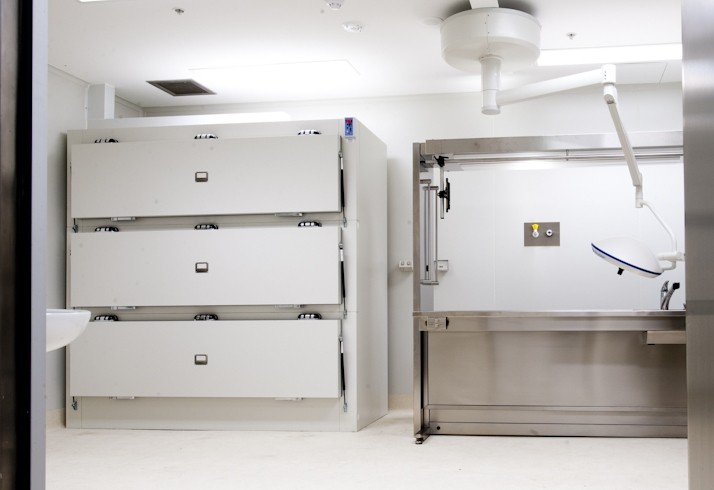Between 1967 and 1985 the Australian Human Pituitary Hormone Program (AHPHP) treated about 2000 people with pituitary-derived hormones for infertility or short stature.
In 1985, following the deaths of recipients of human growth hormone in the United States and England, the program was suspended. During the period of 1988 to 1991, four Australian women tragically died from Creutzfeld Jakob Disease (CJD) following their participation in the program.
These deaths resulted in an inquiry into the AHPHP, led by Professor Margaret Allars from the University of Sydney; its findings were published in June 1994. They also led to the formation of The National CJD Case Registry (now known as the Australian National CJD Registry or short ANCJDR) in September 1993.
Today, with 25 years successful operation, the ANCJDR is one of the oldest disease registers in Australia.

The ANCJDR, based at the Florey Institute, is funded by the Commonwealth Government and is responsible for the national surveillance of human prion diseases in Australia.
The ANCJDR delivers diagnostic testing services for Australia and the SE Asia region; it manages a comprehensive epidemiological database and provides ad-hoc expertise to health care professionals, committees and working groups on human prion diseases and infection control.
The ANCJDR also contributes to CJD research nationally and internationally.
Last year, the ANCJDR introduced, in collaboration with the National Dementia Diagnostics Laboratories, additional CSF based biomarker tests to aid in the diagnosis of rapid dementias.
The expertise, information and biobank acquired in 25 years of prion disease diagnostics, surveillance and epidemiology provides invaluable resources for the diagnosis and research into prion diseases and other neurological illnesses.
ANCJDR staff are proud to celebrate this year a quarter of a century of service to the CJD community; each team member will attest that they have the best job in the world – demanding, but very rewarding.
In a rare and fatal disease, the interface between research and patient care can be at times closer than in other illnesses – occasionally, a box of chocolates, a card or a visitor from a patient family find their way into the ANCJDR office.
ANCJDR staff and prion researchers are enthusiastic members of #teamprion.
While marking this milestone, we honour the lives lost to prion disease, especially the four women who contracted the illness through participating in the AHPAP as part of their IVF treatment.
